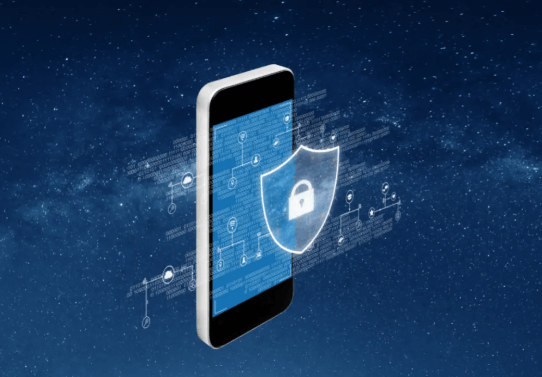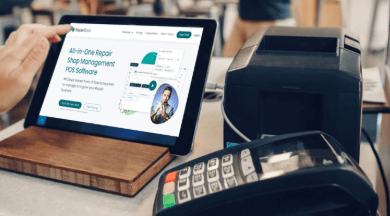Reasons to Choose the Best Mobile App Security

Apps on mobile devices have gradually merged into everyday life both personal and business despite current highly networked society. Instant messaging and calls, betting and gambling, banking and paying for products and services, all possible with the aid of smartphone apps. But with this growing reliance lies a big problem: to protect our private information from new evolving threats in the World Wide Web. Application security for mobile app security is gradually making its way to be one of the essential security controls that help safeguard our hard-earned cash, data, and existing identity online.
1.Understanding the Modern Digital Threat Landscape
Computer threats are dynamic and infinite and are ever changing in the environment that is cyberspace. There are villains who wish to exploit the vulnerabilities in mobile apps, or, at a bare minimum, extort personal information or systems. Since new exploits that bypass the security features are being developed every day, it is necessary for the developers and users to act proactively.
New technologies have affected the kind of threats in cyberspace. Complex technical knowledge is no longer a prerequisite since all the hacking tools and platforms are now available. Hackers are also in a position to gain unauthorized access to the transmissions, or in dictionary attacks inject damaging code to mobile applications with merely some vulnerabilities. It is noteworthy that security of applications for portable devices has concerned an important focus because of the exponential trends in the use of portable devices and the amount of personal information they contain.
Mobile app security specifically refers to the ability of mobile application structures to prevent or curb various negative scenarios associated with application use; conversely, poor mobile app security has catastrophic and extensive repercussions. In simple terms, financial loss; loss of identity; damage to one’s reputation; and extreme emotional and mental suffering can all be causes of one security breach. Businesses may suffer devastating effects such as fines, legal actions and more importantly a loss of the stata’s customers. Hence, in today’s world, understanding and implementing secure mobile app measures is not just an innovative requirement but a responsibility.
2. Safeguarding Private and Sensitive Data
Personal information is now an economic asset in the digital marketplace because of the evolution of the twenty-four/ seven marketplace. First, a huge amount of confidential information including geolocation data, money information, history of conversations, and personal identification numbers are often collected and kept by Mobile apps. The current data can easily fall into wrong hands and be used illegally in the absence of sufficient security measures.
Modern stationary methods are very cunning, they have pre-planned ways and means to get personal information. Mobile applications can also be hacked and the user information can be stolen in famous ways like the virus infiltration attack, phishing attack and social engineering attack. These attacks are becoming more complex; the most common one is when they mimic authentic communication channels or exploit psychological signals to make users reveal personal details.
3. Preventing Financial and Transactional Risks
It is known that financial transactions using specific applications are seen by cybercriminals as a vast and highly tempting opportunity. Due to the large sum of money the exchange for goods and services daily, banking and payment apps, and e-commerce applications are often a target of most cybercrimes. While small enterprises and ordinary consumers may lose a considerable amount of money due to cyber threats, it goes without saying that big corporations will also be affected.
In addition to the simple named hacking methods, there are strategies involving financial fraud. Today, the threat actors leverage techniques such as man-in-the-middle attacks, where these cybercriminals interject themselves into the interactions between servers with mobile applications in the hopes of excising financial information or authentication credentials. These attacks are especially dangerous and sometimes hard to recognize because they can occur smoothly and very often without the user’s interference.
High security should therefore be incorporated in the banking mobile applications in order to protect the user confidence as well as the financial assets of users. This type of financial fraud can be significantly minimized by employing multi-factor authentication, end-to-end encryption, secure transmission protocols and monitoring tools that run in real time. Mobile apps can create an environment that will protect users’ personal financial information and financial transactions by incorporating the best security measures.
4. Maintaining Customer Trust and Business Reputation
The power of a firm to protect the user information as well as the compliance with high norms of security is linked with the company’s reputation in the digital age. It takes several years and constant efforts to gain consumer trust, and often this trust is easily lost due to a simple security breach that can occur at any one time and can substantially damage the brand’s reputation irreparably. As mobile applications are the main communication channels between companies and the customers, security is an important element of customer relationship management.
Consumers’ fluency with interacting with mobile applications is therefore directly related to Consumers’ perception of security. Individuals actively seek out greater security when choosing platforms with which they will interact because they are also increasingly aware of the potential risks associated with the internet. Those who value the security of mobile applications eliminate, at least in some part, the risks and, consequently, stand out among competitors in the ocean of online offers and services with client protection.
5. Mitigating Emerging Technological Risks
New and complicated security concerns brought about by the quick development of technology necessitate constant innovation and adaptation. The potential attack surface for mobile applications is growing due to emerging technologies like cloud computing, artificial intelligence, and the Internet of Things (IoT), which calls for more advanced and flexible security measures.
The intelligence and adaptability of cyberthreats are growing. More sophisticated malware and attack techniques that get past conventional security measures can now be created using machine learning algorithms. To remain ahead of potential vulnerabilities in this technological arms race, security experts and mobile app developers must continuously update and improve their security procedures.
Conclusion
In our increasingly digital world, mobile app security is now a basic necessity rather than an optional one. The expenses necessary to put comprehensive protection methods into place are greatly outweighed by the possible threats connected to insufficient security measures. Enterprise app security can establish a more secure and reliable online environment by giving mobile app security top priority.





